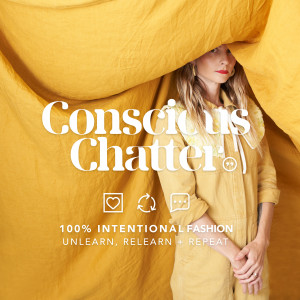
Jeanell English on navigating the pressure to project a certain image in business & across climate spaces and balancing the worlds of activists & execs as a leader in impact
In episode 309, Kestrel welcomes Jeanell English, the founder and CEO of ELIZABETH, to the show. An experienced facilitator and people operations leader, Jeanell has worked in an array of roles, most recently as the Executive Vice President of Impact and Inclusion at the Academy of Motion Picture Arts and Sciences, before she dove fully into her own company, ELIZABETH. “Because the reality is — you’re never gonna win everything you aim to win. It’s not really a competition, it’s about progress. And it’s so easy to be distracted because you’re gonna have people saying: you’re not doing enough, you’re not going fast enough, you’re not going hard enough. You’re gonna hear people saying: you’re doing too much, you’re too hard. So you’re really in this challenging intersection. So, for me, establishing very clear goals at the beginning of any role that I take on is so important because that becomes my North Star, my guiding light, the thing that grounds me and keeps me focused.” -Jeanell What we wear is one way we say something to the world. Each day, we wake up, put on an outfit and step outside into various spaces. The act of dressing, in and of itself, can be an important avenue to express ourselves. At the same time, we operate within a world that is full of expectations that have been constructed over time, and entrenched in power dynamics. Take for example – executive spaces. You have to *look the part*, right? And don’t forget – that usually comes at a high cost. Not only does clothing and appearance play a strong role in these environments, but often, there is an assumption that leaders must act a certain way as well – project a specific persona and showcase their *power position* in how they interact with coworkers. Now let’s add another layer. Imagine you work as an Executive in Impact, Diversity, Equity, Climate or Sustainability. You’re in a role with the understanding of the imminent need to dismantle systems of power as a part of the work – but you’re operating within some sort of hierarchical structure at the same time. And don’t forget the tension of navigating the worlds of activists and executives, as someone working in these fields. How can you satisfy both sides? Are you questioning what this conversation has to do with sustainability and fashion? For starters – the pressure to uphold a specific *image* through the way we dress or act in executive spaces is rooted in inequity. Having to visually showcase that you belong, based on the clothing you wear, is an issue of accessibility. This week’s guest has extensive experience navigating so many of these intersections – and working for notable organizations like The Academy of Motion Picture Arts and Sciences. Creating change is challenging, but learning from folks like her who are navigating these intersections is key to reimagining creative ways to intentionally move forward. Quotes & links from the conversation: “Leading with kindness and respect and curiosity is one of the ways to disarm someone who might be coming to a conversation from a place of defensiveness or wanting to protect legacy, because you’re not coming to attack, you’re coming to understand, to question, to have a conversation, which can be just as effective at dismantling these systems of power. Because you’ve eliminated this feeling, this tension that is underlying this conversation that really is about change.” -Jeanell (23:52) “I cannot value inclusion and equity and accessibility if I don’t model it in my own leadership behavior — that’s always been incredibly important to me and for me. And I’ve seen and had the honor of working with great leaders who have modeled that for me.” -Jeanell (28:53) “The reality is someone is always going to have an issue with the way that you’re approaching things — it goes back to what I was talking about and being in this intersection of really vocal, vocal, hugely well respected advocates pushing things forward in a very big way and executives who are satisfying sometimes different needs. They each have different values that are driving them on a day to day. And I think you can get lost in trying to assimilate and align your values with the different parties. When again, what is your North Star? What’s your guiding light? What are the goals that you have set out? And of course, you might flex and you might learn from either side along the way and that informs your path forward, but needing to satisfy or having that innate feeling that you have to satisfy is part of the issue of us moving things forward. I sit in the space of progress, again — progress not perfection.” -Jeanell (32:36) ELIZABETH Website Follow Jeanell on Instagram >



